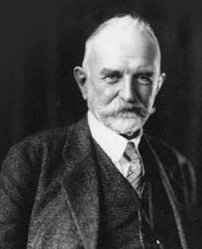A Quote by William Kingdon Clifford
To consider only one other such witness: the followers of the Buddha have at least as much right to appeal to individual and social experience in support of the authority of the Eastern saviour.
Related Quotes
Those who like myself, consider themselves to be followers of Buddha, should practice as much as we can. To followers of other religious traditions, I would like to say, 'Please practice your own religion seriously and sincerely.' And to non-believers, I request you to try to be warm-hearted. I ask this of you because these mental attitudes actually bring us happiness.
Just one quality of the Buddha has to be remembered. He consists only of one quality: witnessing. This small word witnessing contains the whole of spirituality. Witness that you are not the body. Witness that you are not the mind. Witness that you are only a witness. As the witnessing deepens, you start becoming drunk with the divine. That is what is called ecstasy.
Programs of a political nature are important end products of social quality that can be effective only if the underlying structure of social values is right. The social values are right only if the individual values are right. The place to improve the world is first in one's heart and head and hands, and then work outward from there.
Individuals bearing witness do not change history; only movements that understand their social world can do that. Movements encourage solidarity; the moral individual is likely, all unwittingly, to do the opposite, for bearing witness is lonely: it breeds feelings of superiority and moralistic anger against those who are not doing the same.
Not many of us will be leaders; and even those who are leaders must also be followers much of the time. This is the crucial role. Followers judge leaders. Only if the leaders pass that test do they have any impact. The potential followers, if their judgment is poor, have judged themselves. If the leader takes his or her followers to the goal, to great achievements, it is because the followers were capable of that kind of response.
The universe must be experienced as the Great Self. Each is fulfilled in the other: the Great Self is fulfilled in the individual self, the individual self is fulfilled in the Great Self. Alienation is overcome as soon as we experience this surge of energy from the source that has brought the universe through the centuries. New fields of energy become available to support the human venture. These new energies find expression and support in celebration. For in the end the universe can only be explained in terms of celebration. It is all an exuberant expression of existence itself.
That could be applied to whatever you feel. Maybe anger is your thing. You just go out of control and you see red, and the next thing you know you're yelling or throwing something or hitting someone. At that time, begin to accept the fact that that's "enraged buddha." If you feel jealous, that's "jealous buddha." If you have indigestion, that's "buddha with heartburn." If you're happy, "happy buddha"; if bored, "bored buddha." In other words, anything that you can experience or think is worthy of compassion; anything you could think or feel is worthy of appreciation.
If the churches ever did reunite, it would have to be into something that was as sacramental and liturgical and authoritative as the Roman Catholic Church and as protesting against abuses and as much focused on the individual in his direct relationship with Christ as the Evangelicals, as charismatic as the Pentecostals, as missionary-minded as the old mainline denominations, as focused on holiness as the Methodists or the Quakers, as committed to the social aspects of the Gospel as the social activists, as Biblical as fundamentalists, and as mystical as the Eastern Orthodox.
When a parliamentary or social majority decrees that it is legal, at least under certain conditions, to kill unborn human life, is it not really making a tyrannical decision with regard to the weakest and most defenseless of human beings?....While public authority can sometimes choose not to put a stop to something which were it prohibited would cause more serious harm, it can never presume to legitimize as a right of individuals even if they are the majority of the members of society an offense against other persons caused by the disregard of so fundamental a right as the right to life.






































